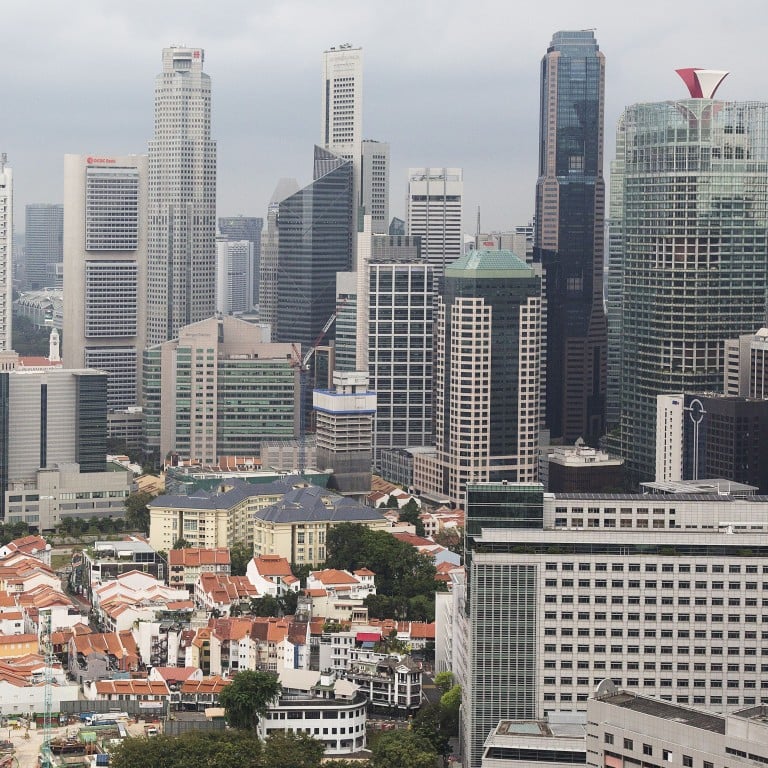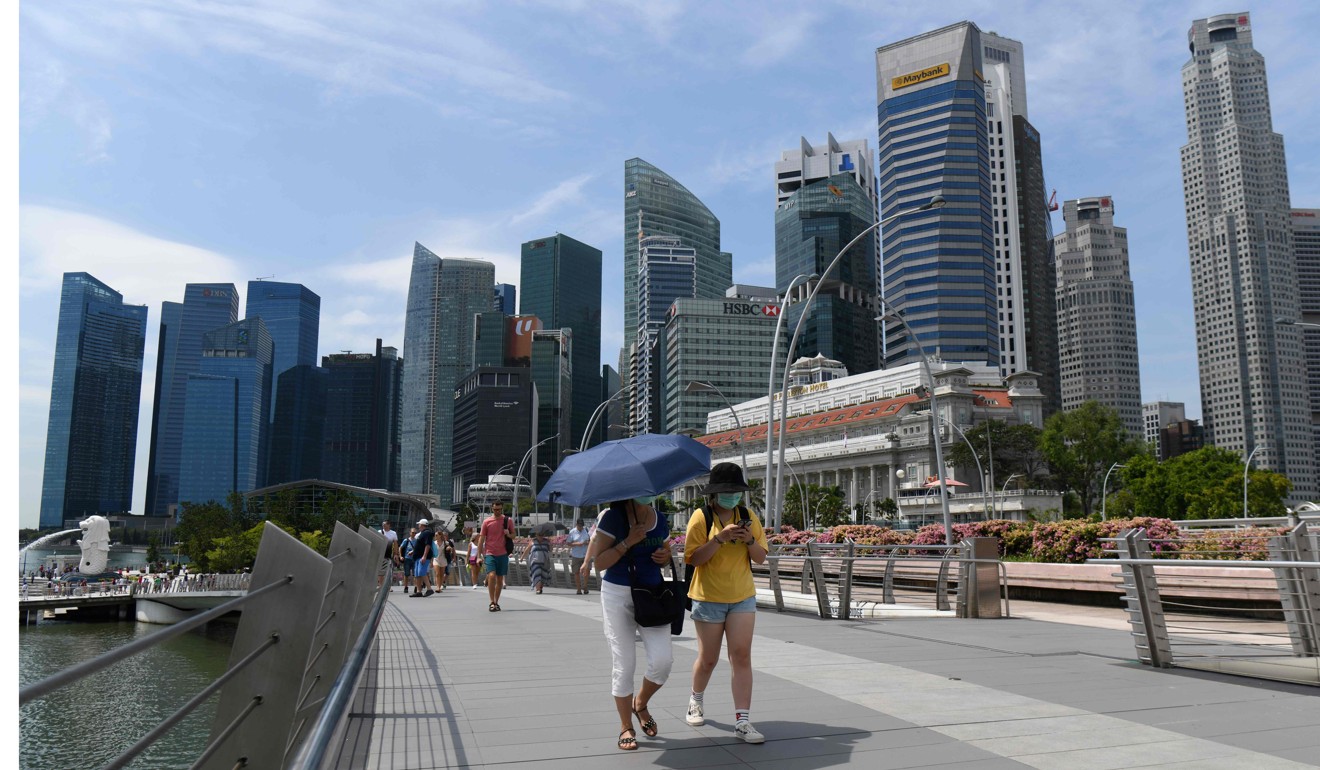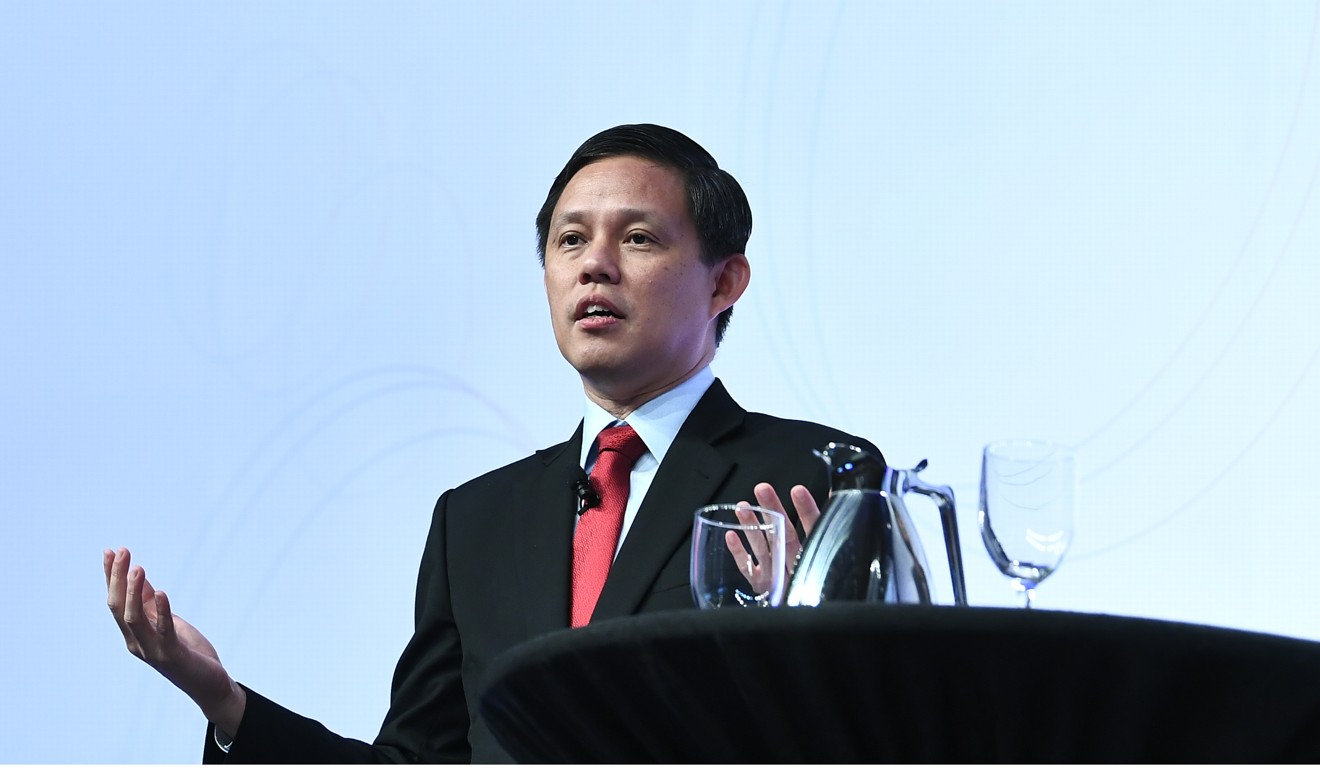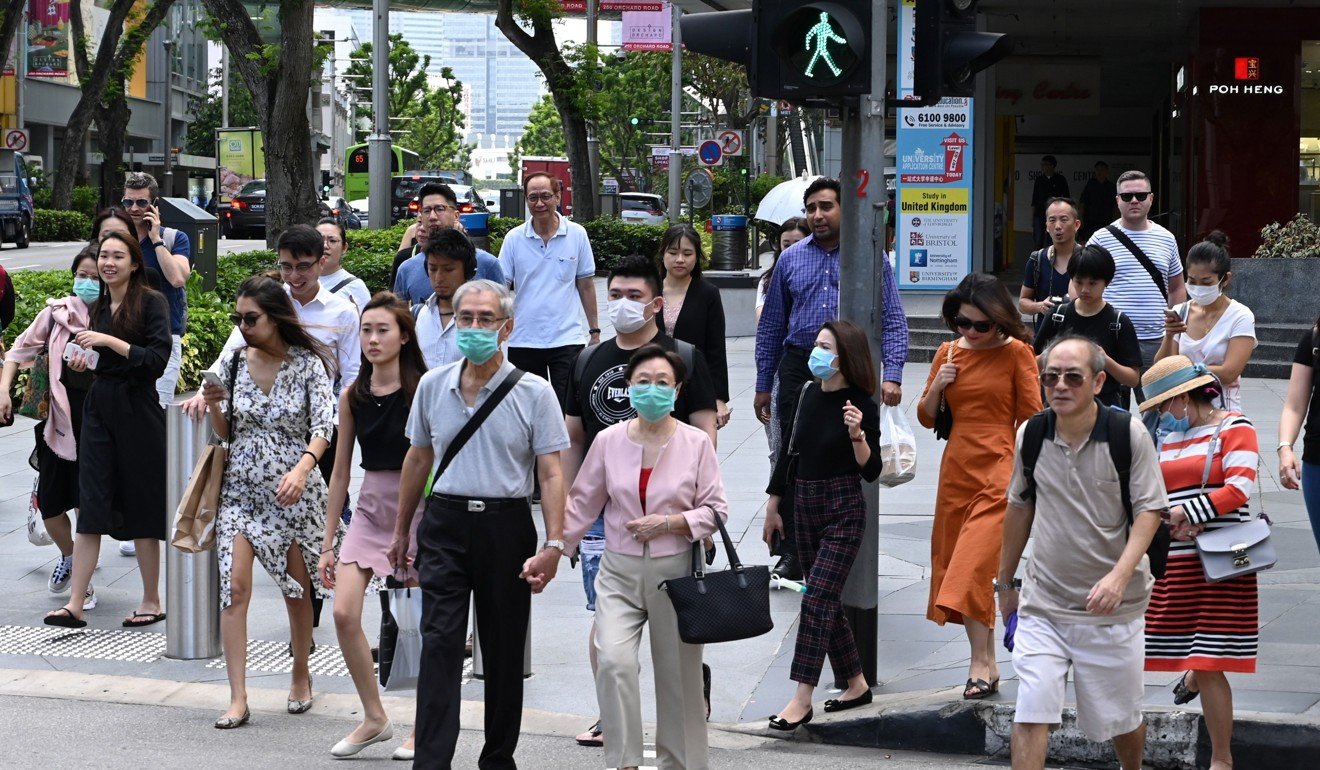
AmCham survey finds American businesses confident in Singapore, despite coronavirus
- Some 98 per cent of members of the American Chamber of Commerce Singapore have expressed faith in the city state as a business hub
- Trade and Industry Minister Chan Chun Sing said businesses must restructure, train workers and diversify supply chains and offerings to emerge stronger
Some 98 per cent of the 225 members surveyed by AmCham Singapore from February 12 to 18 said they had long-term faith in the city state as a business hub.

About 80 per cent of respondents also said Singapore had sufficiently addressed the potential economic impact of the virus, which has disrupted supply chains and upended global tourism.
Singapore’s trade and industry ministry estimates growth this year will be between -0.5 per cent and 1.5 per cent, while Chan said his official forecast for Hong Kong’s growth was between -1.5 per cent and 0.5 per cent.
About four in 10 survey respondents – who are senior business leaders in AmCham member companies – expected the fallout from the virus to drag Singapore’s growth down by 0.1 to 1 per cent, while more than two in 10 thought it would be 1.1 to 2 per cent.
About eight in 10 respondents also thought the situation in Singapore was not as bad as the perception may be from outside the country, while four in 10 said they are re-evaluating their business strategy and operations in response to the outbreak.

During the dialogue, Chan joked that 98 per cent expressing confidence in the country was not good enough. “In Singapore, that’s not the standard,” he said, quipping that the government would try to win over the two per cent to get a perfect score.
He reiterated his comments to the Singapore Chinese Chamber of Commerce & Industry, that businesses must be ready to be the first out of the gate once recovery from the virus fallout starts.
Singapore hospitals would suffer if leaders wore masks like Carrie Lam: minister
Chan said the government was running “simultaneous operations”, both managing the outbreak of the virus and looking ahead to help businesses to recover from it. Singapore must emerge stronger from this crisis, he said.
The minister outlined three paths that need to be taken. First, Singapore must make use of the current downtime to restructure businesses and train workers. Second, Singapore must re-examine its supply chains so that it is not overreliant on any one market. And lastly, businesses need to diversify their market and product offerings.
Chan said in response to questions from the floor that there is an opportunity for Association of Southeast Asian Nations (Asean) members to come together and integrate their supply chains to compete as a bloc and offer an alternative source to China. This includes digital infrastructure.
“Integrate your digital [space], your information space, your payment space, so that you can truly become a more attractive proposition as the 600 million population bloc rather than 10 disparate countries all doing different things at different times,” he said.
From Sars to Covid-19, what lessons has Singapore learned?
Peta Latimer, the chief executive of Singapore operations for American human resources consulting firm Mercer, said the government had been transparent in its public communications on the virus, and had handled the crisis well.
Mercer Singapore is leading the company’s global business continuity planning “because we’re so much more advanced and ahead in the situation”, she said.
“I am much happier in a country like Singapore that focuses on knowing what we need to fix rather than coming from a place of denial,” said Latimer.

Meanwhile, The Economist Intelligence Unit is predicting that global real GDP growth could dip below 2.5 per cent this year. It estimates there is a 20 per cent chance that the coronavirus will not be contained in China until midyear, and a 5 per cent chance that it will remain uncontained beyond 2020.
“Disruption of international trade would become entrenched as supply chains are diverted from China … US-China trade tensions would be more likely to re-escalate, particularly if China proves unwilling or unable to deliver the import commitments agreed under the recent first-phase limited trade deal. A growing number of international exporters would experience financial distress, as a persistent shortfall in Chinese demand depresses commodity prices and export revenues,” it wrote in a paper on risks to the global economy released on Wednesday.

